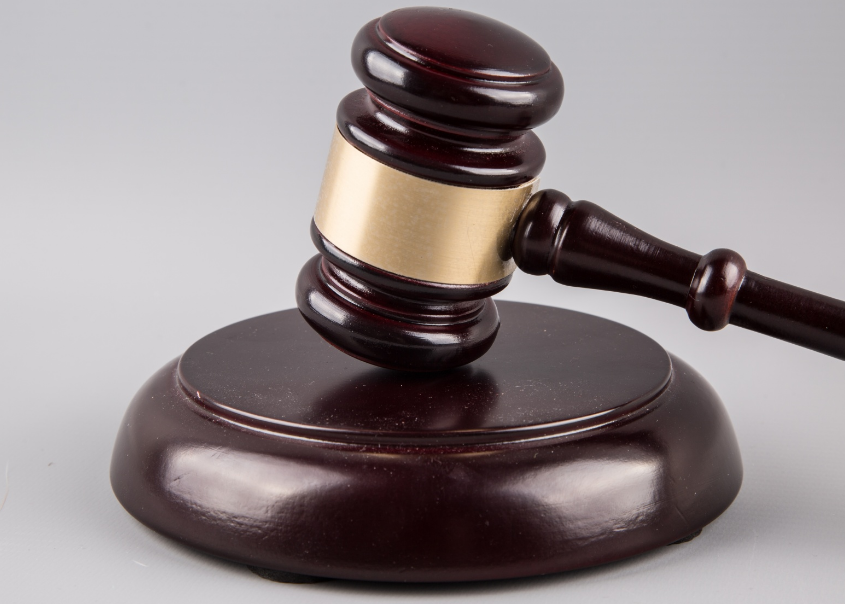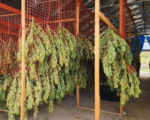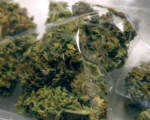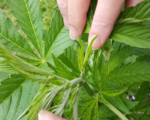A federal appeals court just dealt a big blow to hemp sellers in Wyoming, upholding the state’s strict rules on THC products like delta-8. This ruling could reshape how states handle cannabis-like substances, but what does it mean for businesses and consumers? Dive in to see the full impact.
The U.S. Court of Appeals for the 10th Circuit ruled on October 27, 2025, that the 2018 Farm Bill does not override Wyoming’s hemp THC laws. This decision affirms Wyoming’s right to set tougher standards on hemp products than federal guidelines.
Judges sided with state officials, including Attorney General Bridget Hill and Agriculture Director Doug Miyamoto. They dismissed claims from plaintiffs like Casper’s Green Room LLC and other retailers that the laws violated federal preemption, the dormant Commerce Clause, and were too vague.
The court found no merit in arguments about unconstitutional takings of property. This came after a lower district court tossed the case in August 2024, denying any relief to the hemp businesses.
In a short but firm opinion, the appeals panel made it clear states can redefine hemp more strictly. For Wyoming, that means banning synthetic cannabinoids and limiting THC levels in hemp to below federal allowances.
Background on Wyoming’s Hemp THC Crackdown
Wyoming lawmakers passed Senate Enrolled Act 24 in 2024, which kicked in July that year. It changed the state’s 2019 hemp laws to crack down on “psychoactive” substances.
The act bans delta-8 THC and other hemp-derived intoxicants created through chemical processes. It redefines legal hemp to exclude anything with more than 0.3% total THC, but with extra restrictions on isomers like delta-8.
This move came amid growing concerns over unregulated hemp products flooding markets. State officials argued these items posed health risks, especially since they mimic marijuana’s effects without the same oversight.
Before this, hemp sellers enjoyed looser rules under the 2018 Farm Bill, which legalized hemp nationwide with up to 0.3% THC. But Wyoming chose to go stricter, criminalizing sales of certain THC variants.
One key change: The law now requires hemp products to come from naturally occurring cannabinoids, not synthetic ones. This shift hit retailers hard, forcing many to pull popular items from shelves.

Impacts on Businesses and the Hemp Industry
Hemp shops in Wyoming face tough times ahead. Plaintiffs in the lawsuit, including manufacturers and wholesalers, said the ban wiped out their inventory and livelihoods overnight.
For these businesses, the ruling means no quick fix – they must comply or shut down operations involving banned THC products.
Take Green Room LLC as an example. The Casper-based retailer joined 10 others in fighting the law, claiming it burdened interstate commerce by restricting out-of-state shipments.
The court disagreed, noting Wyoming’s rules apply evenly and don’t unfairly target outsiders. This could encourage other states to adopt similar bans, creating a patchwork of regulations across the U.S.
On a brighter note, some industry watchers point to data from the U.S. Hemp Roundtable. Their 2023 report showed hemp sales nationwide topped $28 billion, but with states like Wyoming tightening rules, that growth might slow in restrictive areas.
Consumers now have fewer options for hemp-derived THC, pushing some toward black-market alternatives or legal marijuana in nearby states like Colorado.
Here’s how the law breaks down key restrictions:
- Bans sale of delta-8 THC and other synthetic isomers.
- Limits total THC in hemp to 0.3%, excluding processed forms.
- Criminalizes possession or distribution of psychoactive hemp products.
Broader Legal and Social Ripples
This case highlights tensions between federal and state powers in the cannabis world. The 2018 Farm Bill aimed to boost hemp farming, but it left room for states to add their own layers.
Wyoming’s approach mirrors moves in places like Texas and Florida, where similar bans on delta-8 have sparked lawsuits. A 2024 study by the National Conference of State Legislatures found 18 states now regulate or ban intoxicating hemp products beyond federal limits.
Critics argue these laws protect public health, while supporters of hemp say they stifle innovation and hurt small businesses.
The ruling might not end here – plaintiffs could appeal to the Supreme Court, though that’s a long shot. For now, it gives Wyoming officials a win in controlling what hits store shelves.
In terms of everyday effects, residents might see safer products, but at the cost of variety. Parents worried about kids accessing potent edibles could feel relieved, yet adults seeking alternatives to marijuana lose out.
| Aspect | Federal 2018 Farm Bill | Wyoming’s 2024 Law |
|---|---|---|
| THC Limit | Up to 0.3% delta-9 THC | 0.3% total THC, no synthetics |
| Delta-8 Allowed? | Yes, if under limit | Banned entirely |
| Psychoactive Products | Not restricted | Criminalized if intoxicating |
| Enforcement | USDA oversight | State criminal penalties |
This table shows the stark differences, underlining why the court battle mattered.
The 10th Circuit’s decision on Wyoming’s hemp THC ban marks a pivotal moment for state rights in regulating cannabis-like products, affirming that local laws can trump federal baselines when it comes to public safety. As businesses adapt and consumers adjust, this ruling sparks hope for clearer regulations but also fear of overreach that could limit choices. It reminds us how quickly the legal landscape around hemp is evolving, potentially setting precedents for other states grappling with similar issues.
Maria Garcia is an award-winning author who excels in creating engaging cannabis-centric articles that captivate audiences. Her versatile writing style allows her to cover a wide range of topics within the cannabis space, from advocacy and social justice to product reviews and lifestyle features. Maria’s dedication to promoting education and awareness about cannabis shines through in her thoughtfully curated content that resonates with both seasoned enthusiasts and newcomers alike.








